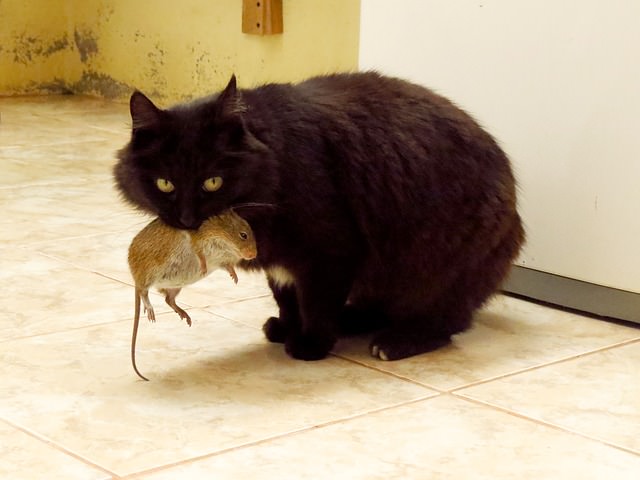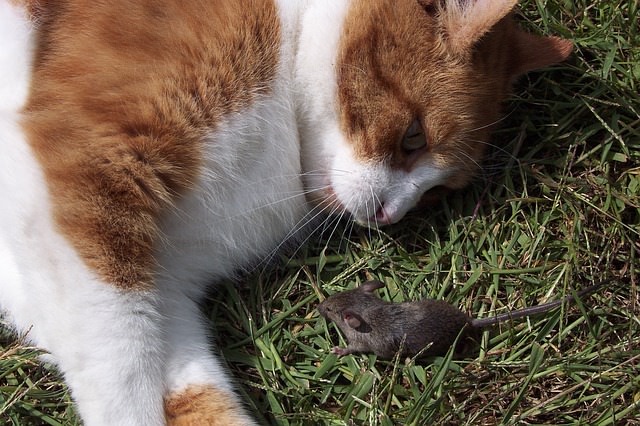
Cats were originally brought into the human world because of their supreme hunting skills. Rodents had become a problem for early farmers who stored grains for their livestock and cats were an amazing answer. We developed a partnership with cats that has evolved into what we have today. But cats have held onto a lot of their ancestors’ tendencies. In fact, domestic cats are not genetically very far from their ancestors at all. Researchers have looked into the feeding tendencies of modern domestic cats.
When observed in a laboratory setting, even cats who were not hungry were shown a prey animal, like a rodent and would stop eating to kill the prey. The cats sometimes dragged the dead prey back toward the dish still sitting with the food in it. 1
We have learned from studies and observation that a cat’s hunting instinct is not exactly tied to his state of hunger. In fact, the mere presence of prey, with the associated scents and movements, can incite a cat to kill.
This perhaps explains why well fed pet cats still are driven to kill rodents and other small prey, but what about why they “gift” their kills to us? Cats cannot fathom that we do not think like they do. They have no understanding that we feed them and do not eat the exact same food that they do.

I believe that cats see us as family members. Since they are solitary hunters by nature and do not live and work as a pack, their only typical grouping in the wild tends to be a family group. As a functioning family group, the members share resources and help insure the survival of the whole group. I think that the reason my cat brings me dead things is that he wants to contribute to our mutual survival. He recognizes that I bring resources to him (almost every time he meows) and he wants to do his part.
Of course cats are always a delightful mystery and I have asked my cat why he brings me dead things and he just will not say. He just looks at me with disdain and sometimes meows a little as I (like the good servant that I am) respond, “I know. You are a good kitty.” I am not sure if he thinks that I am a senior member of the family or if he feels responsible for my pitiful self!
- Adamec, R.E. (1976) The Interaction of Hunger and Preying in the Domestic Cat (Felis Catus): An Adaptive Hierarchy? Behavioral Biology, 263-272
- Bradshaw, J., Casey, R.A. and Brown, Sarah (2012) The Behaviour of the Domestic Cat: 2nd edition. 132-33.
